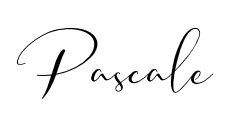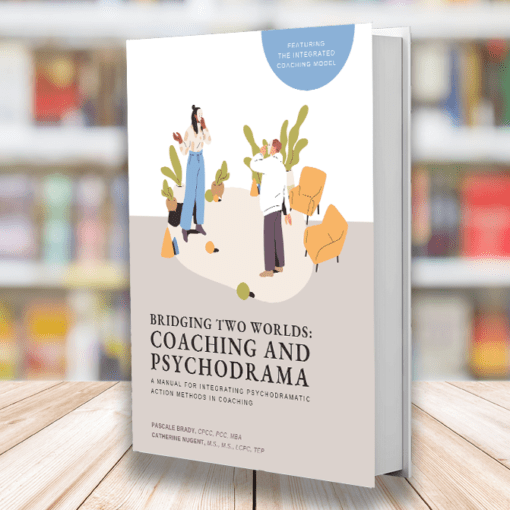CAN YOU HELP?
I am currently working on two separate certifications for which I need to submit demo-recordings of coaching sessions.
I am offering FREE COACHING SESSIONS in exchange for the permission to record and submit the sessions for the purposes of the certification. You could call this a “win-win” kind of offer!!
Please schedule a 50 minute “regular coaching session” in MY CALENDAR using the code “WINWIN” if you are able and willing to support me. And do not hesitate to share this with anyone whom you think this might benefit as well!
I appreciate your consideration.
When I am not coaching, facilitating, training or speaking, one of my latest hobbies is to be a podcast guest. As a coach, my job and most important task – one could even argue my main responsibility – is to ask questions and listen. Which, for an extravert and verbal processor like me, is more challenging than it might seem. When I discovered the world of podcasts, I squealed with delight: you mean I can actually show up in a meeting, without having to prepare anything, and just talk in response to questions that for once someone is asking ME? And, to boot, I get to speak about topics I am absolutely passionate about? Maybe even share some learnings and expertise? This is a dream come true!!! Needless to say, if you are reading this and have a podcast, contact me! I’d love to chat 😊.
As a result of this recent discovery, you might have noticed that podcast recordings are starting to pop up on my webpage under the Resources/Media tab. I have enjoyed all the conversations I have had with podcast guests so far, and the latest one we posted was no exception. I was honored to spend half an hour with George Siegal on his “Tell Us How To Make It Better” podcast. It probably won’t surprise you that the topic of our conversation was “how to survive a crisis and be a better person”.
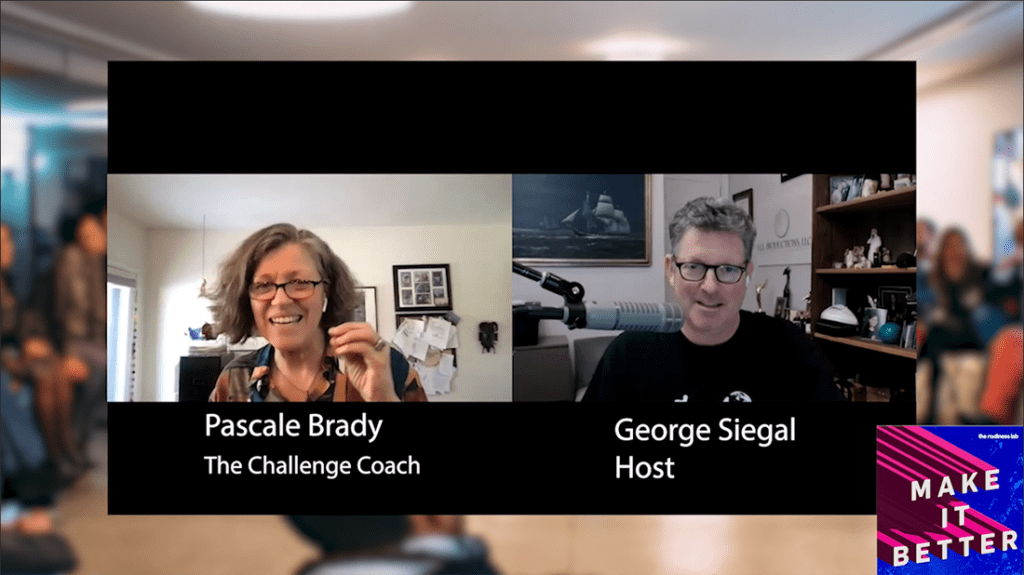
One of the questions George asked me was “So on a day-to-day basis, how would somebody recognize: “Hey, I'm kind of spinning my wheels here. I need to get a coach.” What would be the indication that I'm not going to solve my problems by myself?”. My answer to George was that you know when you need a coach when you feel stuck like a hamster on a hamster wheel. You are in a spot in your life or career that doesn’t feel quite right – or might even feel downright uncomfortable or painful. You have been wanting change for a while – and somehow you can’t make it happen for yourself. You might also be confronted with something that you haven’t dealt with before and have no idea how to tackle, or the challenge that life just threw at you is too big to deal with by yourself.
A coach is really a catalyst. Through powerful questioning, a coach helps you untangle your thoughts to see more clearly what options are available to you, and supports you in finding a path toward your goals.
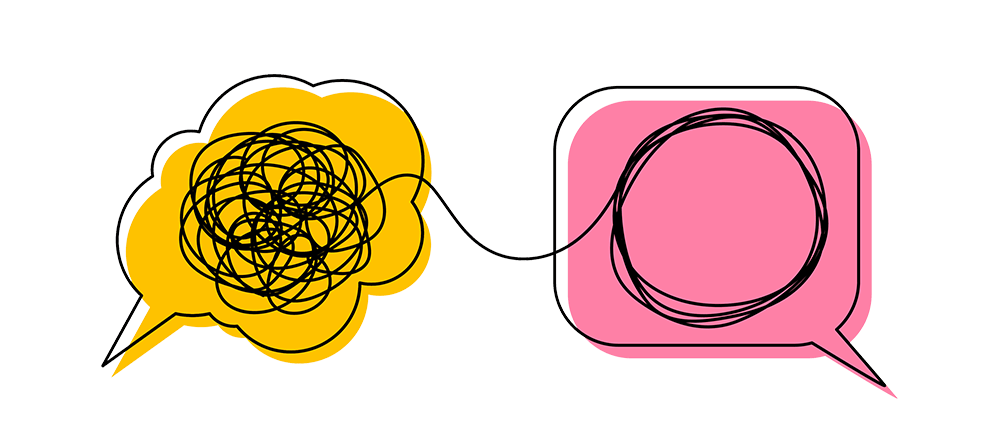
A coach is also your most fervent supporter and fan: thanks to indefectible encouragement, a coach helps you find your strengths and build on them to reach your objectives.

During the conversation with George, here are some of the other topics we discussed:
- What type of coaching work do you do?
- What sets you apart from other coaches in this competitive field of coaching?
- What’s the process of coaching?
- Did Covid change the problems people were having or their intensity?
- How do you help someone who says they want to change but don’t actually do anything about it but complain?
- Can coaching light a fire under someone?
- How did becoming a widow change your life?
- What advice do you have for someone who wants to start something new in their life?
And we even managed to sprinkle some parenting topics here or there …
You can listen to the podcast here. You can also watch the videocast of it here.
One topic we did not have time to discuss was the difference between coaching and therapy. Yet, it’s one of the top Google questions about life coaching:
“How is a life coach different from a therapist?”
And I personally often get asked:
“How do I decide whether to go speak to a psychotherapist or to a coach?”
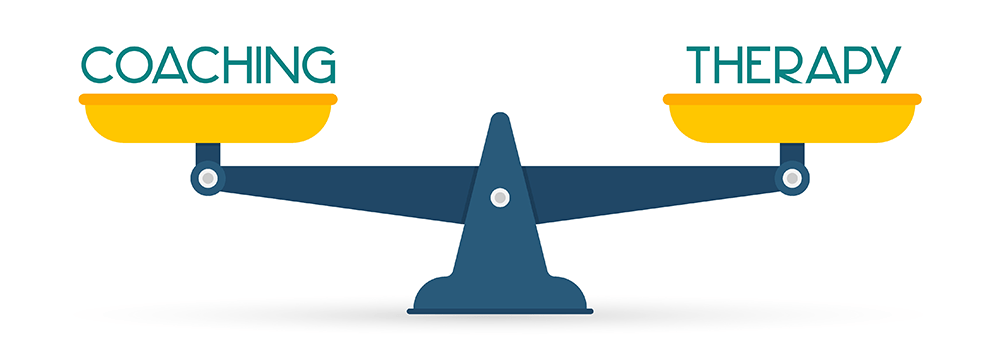
I am so glad you asked!! It is one of my favorite topics – so much so that I developed a workshop about this very subject called “The Grey Zone: Where Coaching meets Therapy”.
Let’s first look at what is USUALLY said and written about this: “The primary difference between a therapist and a coach is that, generally speaking, therapists tend to focus more on the past or present while coaches tend to focus more on the present and the future. Therapists are often more focused on cognitions while coaches are often more focused on behaviors. Therapy is a process in which a client works with a healthcare professional (the expert in psychology) to diagnose, heal and resolve problematic beliefs and behaviors. Whereas in life coaching, a client (the expert in themselves) works with a coach (the catalyst), who is (usually) not a healthcare professional, to clarify goals and identify obstacles and problematic behaviors in order to create action plans to achieve desired results.”
But what I really believe about the difference is this: it’s not WHAT coaches and therapists do, or WHO they do it with that draws the line between coaching and therapy – it is the TYPE OF PRESENTING PROBLEM the client brings to the table. Mental illness, traumatic life events or generally trauma, stories that live in the past especially ACEs (Adverse Childhood Experiences), things that stop a person from functioning productively in day to day life, maybe when people are reluctant to see that there is a problem or to discuss a problem – all these topics belong in therapy. When people WANT change, KNOW that something is getting in their way, WANT something different, and when what’s in the way is not “dis-ease” – then coaching is a perfectly suited modality to support clients in reaching their goals.
Michael Bader, a psychologist and psychoanalyst in San Francisco, wrote an amazing article about this subject. He finishes his article with this line: “What matters is that people get help in their efforts to grow, master their problems, and become more effective in their lives. Both approaches aim to do this. Who cares (licensing boards notwithstanding) what you call them?”
I did find this nifty little diagram which I think brilliantly encapsulates the differences between the varying helping professions. It illustrates when a profession is more concerned with problems rather than solution-oriented, and on the other plane, which professions are more expertise based and about “telling/teaching”, as opposed to the ones which one could call more “Socratic”, i.e. based in asking questions.
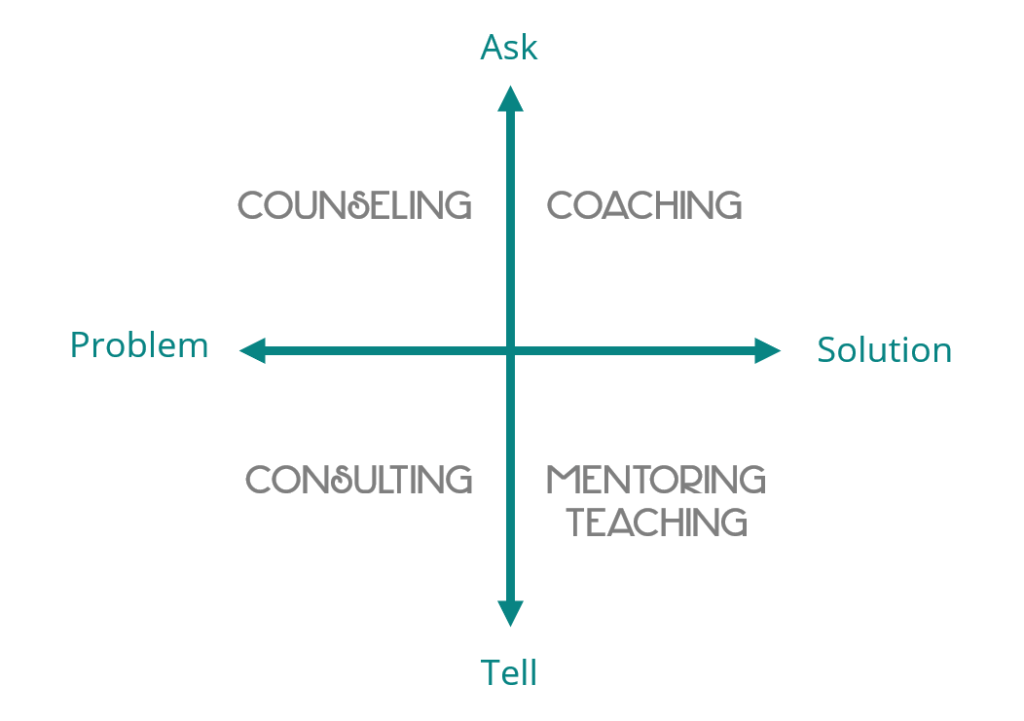
This quote is a great metaphor for the coaching work I do with my clients:
"Come to the edge," he said.
"We can't, we're afraid!" they responded.
"Come to the edge," he said.
"We can't, We will fall!" they responded.
"Come to the edge," he said.
And so they came.
And he pushed them.
And they flew."
~ Guillaume Apollinaire

So, if you have been wanting change for a while and somehow you can’t make it happen for yourself, or are confronted with something that you haven’t dealt with before and have no idea how to tackle, or the challenge that life just threw at you is too big to deal with by yourself, please do get in touch! I'm ready to be your catalyst, fervent supporter and biggest fan. Together we will take the next step!
